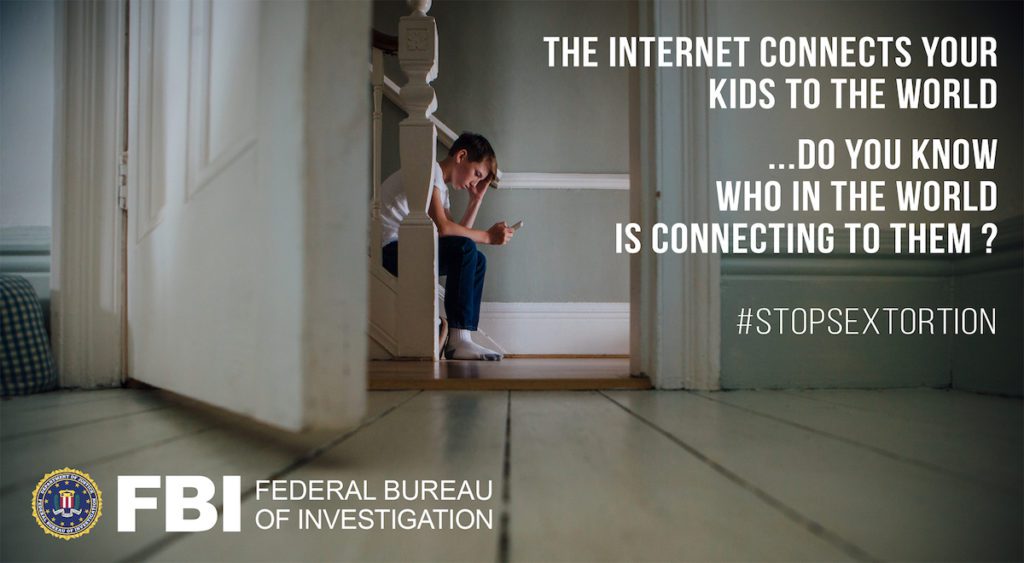Sextortion are up significantly in New Mexico in 2022, the NM FBI said in a warning statement to parents and children.
According to data released by the agency, there were 168 e-tips or calls about possible cases in the state reported to the FBI’s National Threat Operations Center this year through Dec. 19; that’s compared to 38 for the same time period in 2021. While some of the tips may reference the same incident, the increase is significant enough that the FBI wants to bring attention to the issue as schools let out for winter break and children are expected to spend more time online.
Monday’s warning also comes on the heels of a national public safety alert from the FBI, Homeland Security Investigations and the National Center for Missing and Exploited Children “regarding an explosion in sextortion incidents in which children and teens are coerced into sending explicit images online and extorted for money.”
“The FBI and our partners have repeatedly sounded the alarm about the dangers of sextortion and the toll it takes on young victims,” Special Agent in Charge Raul Bujanda of the Albuquerque FBI Division said. “We hope this latest announcement gets everyone’s attention. We want to help the children who are targeted by these predators, and one of the best ways to do that is for victims as well as parents or guardians to report this crime. Do not be embarrassed. Help us so we can help you.”
Sextortion trends
- Over the past year, there have been 7,000 reports related to online financial sextortion of minors, affecting at least 3,000 victims (primarily boys) and more than a dozen suicides.
- A large portion of schemes originate in foreign countries, primarily in West African nations such as Nigeria and the Ivory Coast.
- Cases occur in online environments where young people feel comfortable, such as social media sites, gaming sites or video chat applications.
How it works
Online predators use these platforms — and fake female accounts — to target minor males. Typically, victims range in 14-17 years old, but the FBI has interviewed victims as young as 10. They then convince the victims to produce an explicit video or photo, then threaten to release the compromising material unless the victim sends money or gift cards. However, even if payment is made, the predators often release the images anyway, and the shame, fear and confusion victims feel often prevent them from asking for help or reporting the abuse.
Talk to your children
As many children enter winter break this week, the FBI and its partners implore parents and caregivers to talk to their kids about financial extortion schemes in an effort to prevent them from even taking place.
“The FBI has seen a horrific increase in reports of financial sextortion schemes targeting minor boys — and the fact is that the many victims who are afraid to come forward are not even included in those numbers,” said FBI Director Christopher Wray. “The FBI is here for victims, but we also need parents and caregivers to work with us to prevent this crime before it happens and help children come forward if it does. Victims may feel like there is no way out — it is up to all of us to reassure them that they are not in trouble, there is hope, and they are not alone.”
Take a moment to learn how sextortion works and how to talk to your children about it. Information, resources and conversation guides are available at fbi.gov/StopSextortion.
What if you or your child is a victim?
If young people are being exploited, they are victims of a crime and should report it. Contact your local FBI field office, call 1-800-CALL-FBI or report it online at tips.fbi.gov.
NCMEC has outlined steps parents and young people can take if they or their child are a victim of sextortion, including:
- Remember, the predator is to blame, not your child or you.
- Get help before deciding whether to pay money or otherwise comply with the predator. Cooperating or paying rarely stops the blackmail and continued harassment.
- Report the predator’s account via the platform’s safety feature.
- Block the predator and do not delete the profile or messages because that can be helpful to law enforcement in identifying and stopping them.
- Let NCMEC help get explicit images of you off the internet.
- Visit //MissingKids.org/IsYourExplicitContentOutThere to learn how to notify companies yourself or visit cybertipline.org to report to us for help with the process.
- Ask for help. This can be a very complex problem and may require help from adults or law enforcement.
- If you don’t feel that you have adults in your corner, you can reach out to NCMEC for support at gethelp@ncmec.org or call NCMEC at 1-800-THE-LOST.


